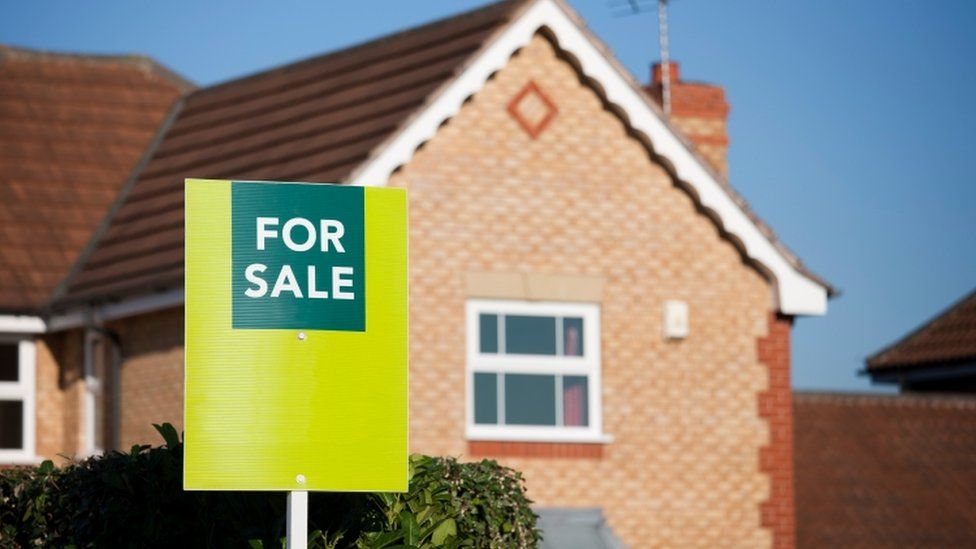House price growth slows as housing market cools
- Published
- comments

The Halifax says house prices rose again in July after dipping last month, making the average price £261,221 and leaving prices 7.6% higher than at the same time last year.
Last month, average prices were 8.7% up on a year ago.
The lender said it expected prices to settle further after the recent spate of strong rises, which has been fuelled in part by tax breaks on stamp duty.
But it said a shortage of homes was likely to support prices.
The average property price across the UK was £261,221 in July, with the highest rises of 13.8% seen in Wales and the lowest - 2.5% - in London.
The government gave some home buyers a temporary break from paying the set tax paid on certain housing transactions. It completely waived the payment on the first £500,000 of any property purchase in England or Northern Ireland, but that break finished at the end of June.
Now a 5% tax kicks in at £250,000 for properties up to £925,000. Rates on properties above that are higher.
From October, rates are due to return to normal, which means the point at which homebuyers start paying stamp duty will revert back to £125,001.
Russell Galley, managing director of Halifax, said: "This easing was somewhat expected, given the strength of price inflation seen last summer, as the market began its recovery from the first lockdown and with activity supported by the start of the stamp duty holiday."
He said that instructions "for sale" were now falling and estate agents had seen a fall in the number of available homes: "This general lack of supply should help to support prices in the near-term, as will the exceptionally low cost of borrowing and continued strong customer demand."
'Great wall of money'
Nicky Stevenson, managing director at the estate agent group Fine & Country, said huge demand remained: "This data shows the era of ballooning house prices is not over yet, even if a little air is now slowly starting to hiss out of the market.
"While annual growth has softened slightly since the frenzied heyday of the stamp duty holiday, there is still a great wall of money coming into the market despite the phasing out of this much celebrated tax break.
"Super-low interest rates, shrinking housing stock, greater mortgage availability and government support for buyers should mean house price growth remains resilient into the autumn."
Related Topics
- Published7 July 2021
- Published2 June 2021